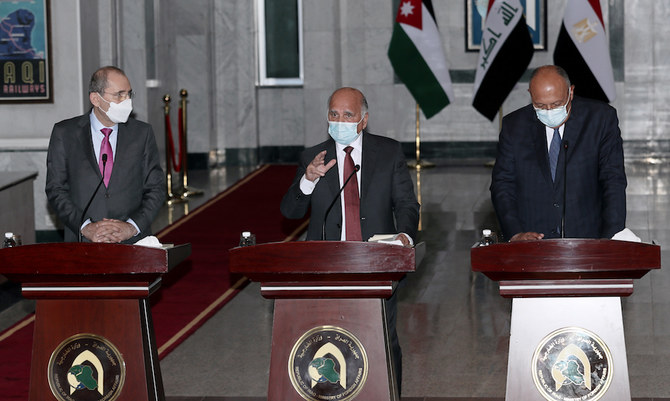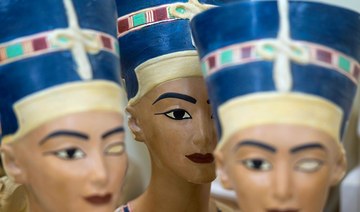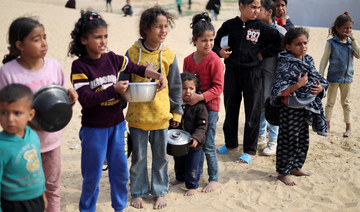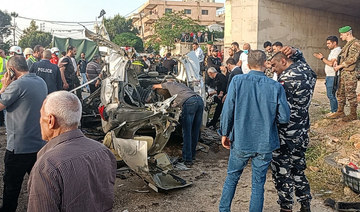AMMAN: The foreign ministers of Jordan, Egypt, and Iraq met in Baghdad on Monday to reschedule a leaders summit following the event’s postponement last Saturday due to a train accident in Egypt that killed 19 people.
Jordan’s King Abdullah II called Iraqi Prime Minister Mustafa Al-Kadhimi to highlight the importance of building a network “complementary to the needs of the people” of the three countries.
Iraqi Foreign Minister Fuad Hussein said he discussed with Ayman Safadi and Sameh Shoukry, his counterparts from Jordan and Egypt respectively, several aspects of joint economic cooperation. He added that they also talked about strengthening and developing cooperation in the urban and industrial fields, and ways to facilitate the granting of entry visas to citizens of each other’s countries.
They also discussed economic, regional and international issues of common concern, including recent developments in a number of regional issues including the Palestinian situation, the conflict in Syria, the war on terror, and the crises in Yemen and Libya, according to a joint statement.
Shoukry said that Cairo is looking forward to the leaders’ summit taking place as soon as possible to help enhance cooperation between the three countries, in particular in the fields of energy, health, construction, reconstruction, agriculture, pharmaceuticals and food.
Safadi said the security and stability of Iraq is necessary for the security of the region, and that his country stands by Iraq in its efforts to restore stability and rebuild. He added that he hopes the leaders’ summit will be “effective” in enhancing joint cooperation.
Oraib Rantawi, director of the Al-Quds Center for Political Studies, told Arab News that the upcoming summit is important because it will bring benefits for all countries in the region.
“The benefits in terms of energy cooperation and an electric network, rebuilding plans for Iraq, building a major highway allowing for the movement of workers and setting up free tax areas will help all regional countries.” Rantawi said.
Despite Palestine not being part of the coalition at present, there is “no reason why they will not be included later once they can find ways to avoid Israeli obstacles,” Rantawi added.
Wafa Bani Mustafa, head of the Alliance of Female Arab Parliamentarians, said that a unifying agreement between countries in the region is useful and necessary.
“But we have had bad experiences in the past and hopefully we have bypassed those. Can we open up with Baghdad without making a decision about Iran and the return of the Jordanian ambassador to Tehran?”
Mustafa said that the upcoming summit should be seen in a “positive way,” despite the public “being uneasy because of failures and a lack of credibility in past agreements.”
The former Jordanian MP also said there is a political importance to the summit. “After the Gulf normalization with Israel, this alliance is necessary for Jordan’s highest interests.”
However, Khaled Ramadan, a former Jordanian MP and leader of the Maan political movement, said that foreign interests could be pushing the agreement. “I am worried that this is not a serious effort and that the move is partly driven by the US, which has signed military agreements with all three countries.”
But Ramadan said that the pandemic has also forced countries to revisit the prospect of improved regional relations.
“If the pact is mostly economic, then I think it would be good for all three countries.”
Ramadan added that, if the pact is void of external political forces, then it would be a “good idea” for Palestine to enter into the alliance.




























